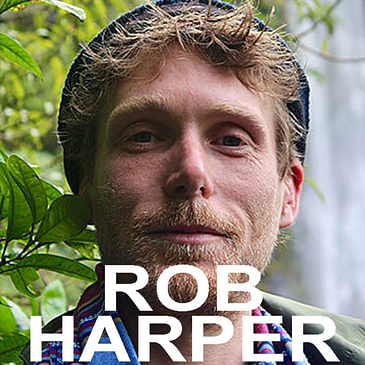Rob Harper is a Filmmaker, Body Psychotherapist and Shamanic Practitioner. He is the Producer/Director/Screenwriter of 'Journeys to the Edge of Consciousness' (2019) a part-animated feature documentary about three psychedelic trips that changed the world forever. Rob is a graduate of the National Film and Television School and has filmed for many of the major UK broadcasters, as well as teaching and mentoring young filmmakers at an undergraduate level. He is the founder of Hidden Depths Productions, a company dedicated to producing thought provoking films for broad audiences on complex topics of urgent human interest. He has undertaken a shamanic apprenticeship in the lineage of the Mother Goddess, and completed a six-year Body Psychotherapy training. He now works in private practice, with a particular focus on supporting men in their journeys towards healing and wholeness.
Watch Journeys Here: https://www.journeysmovie.com/
Podcast Links:
Website: https://jakewarinnerpodcast.com/
Spotify: https://open.spotify.com/show/3kiojUxYZFyVdHOGl727jR?si=31164e616f1846a9
Apple: https://podcasts.apple.com/us/podcast/jake-warinner-podcast/id1711278585
Timestamps:
00:00 Motivation to Make the Film
02:48 The Importance of Storytelling in Documentaries
06:13 The Process of Making a Film
09:21 Choosing Material for the Film
12:28 Working with Voice Actors
19:28 The First Story of Timothy Leary
23:43 Controversy Around Timothy Leary
30:12 Communicating the Psychedelic Experience
30:25 Exploring the Writings of Leary, Huxley, and Watts
32:37 The Impact of Psychedelic Controversy
33:38 Lost Research Opportunities
36:39 The Control and Suppression of Psychedelic Use
40:26 Mystical Experience and Power Structures
44:02 The Importance of Reconnecting with the Spiritual Life
48:11 Selecting Interviewees and Structuring Questions
54:34 Future Projects on Shamanism and Body Psychotherapy
57:41 How to Get in Touch with the Film
Thanks for listening!
Jake
